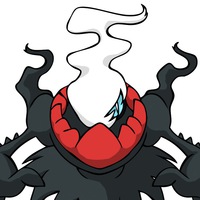
Cu-cuo-cuso4-cu(oh)2-cuo-cu-cucl2
 0
0
 0
0
Ответы на вопрос
 Внимание! Ответы на вопросы дают живые люди. Они могут содержать ошибочную информацию, заблуждения, а также ответы могут быть сгенерированы нейросетями. Будьте внимательны. Если вы уверены, что ответ неверный, нажмите кнопку "Пожаловаться" под ответом.
Внимание! Ответы на вопросы дают живые люди. Они могут содержать ошибочную информацию, заблуждения, а также ответы могут быть сгенерированы нейросетями. Будьте внимательны. Если вы уверены, что ответ неверный, нажмите кнопку "Пожаловаться" под ответом.

1)2Cu+O2=2CuO
2)CuO+SO3=CuSO4
3)CuSO4+2KOH=Cu(OH)2+K2SO4
4)Cu(OH)2=CuO+H2O
5)CuO+2HCl=CuCl2+H2O
 0
0
 0
0

It seems like you're trying to depict a chemical reaction or a series of chemical reactions involving copper (Cu) and various compounds. Let me break down the reactions for you:
Cu + CuSO4: This appears to be the reduction of copper sulfate (CuSO4) with copper (Cu) as a reducing agent. It results in the formation of copper ions (Cu^2+) and a reduction of copper ions to elemental copper (Cu).
Cu + Cu(OH)2: This reaction seems to involve copper (Cu) and copper(II) hydroxide (Cu(OH)2). It's not a typical chemical reaction, as copper doesn't usually react with its own hydroxide in this manner. Copper(II) hydroxide is a compound, and copper is an element.
CuO + Cu: This appears to be the reduction of copper oxide (CuO) by elemental copper (Cu). It results in the formation of copper ions (Cu^2+) and elemental copper (Cu).
Cu + CuCl2: This represents a reaction between copper (Cu) and copper chloride (CuCl2). It's not a common reaction, as copper typically doesn't react with its own chloride in this way. Copper chloride is usually formed by reacting copper with hydrochloric acid (HCl).
If you have a specific question about any of these reactions or if you'd like more information about a particular aspect of chemistry, please feel free to ask.
 0
0
 0
0
Похожие вопросы
Топ вопросов за вчера в категории Химия
Последние заданные вопросы в категории Химия
-
Математика
-
Литература
-
Алгебра
-
Русский язык
-
Геометрия
-
Английский язык
-
Химия
-
Физика
-
Биология
-
Другие предметы
-
История
-
Обществознание
-
Окружающий мир
-
География
-
Українська мова
-
Информатика
-
Українська література
-
Қазақ тiлi
-
Экономика
-
Музыка
-
Право
-
Беларуская мова
-
Французский язык
-
Немецкий язык
-
МХК
-
ОБЖ
-
Психология
-
Физкультура и спорт
-
Астрономия
-
Кыргыз тили
-
Оʻzbek tili


























